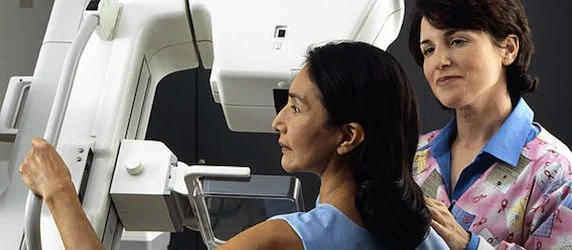New analysis of breast cancer mortality data over almost 40 years concludes that breast cancer screening does not yet show an effect on mortality statistics. The research, published in the Journal of the Royal Society of Medicine, analysed mortality trends before and after the introduction of the UK's National Health Service Breast Screening Programme in 1988. The research was based on an analysis of mortality statistics in the Oxford region because, unlike the rest of England, all causes of death on the death certificate, not just the underlying cause, are available prior to the commencement of the National Health Service breast cancer screening programme. In addition, mortality statistics for the whole of England, where death is recorded as an underlying cause, were analysed.
She concludes: "Measuring the effectiveness of mammography screening is a fundamental area of concern in countries which have established mammography screening programmes. Clinical trials have indicated that several years have to elapse between the start of screening and the emergence of a reduction in mortality. Yet our data shows that there is no evidence of an effect of mammographic screening on breast cancer mortality at the population level over an observation period of almost 40 years."
Researchers from the Department of Public Health at the University of Oxford sought evidence of a decline in population-based breast cancer mortality that could be attributed to the implementation of mammographic screening programmes. They concluded that population-based mortality statistics for England do not show a past benefit of breast cancer screening.
The new research contrasts with the findings of an independent review commissioned by the Department of Health published in 2012 which concluded that there was a 20 percent relative reduction in mortality from breast cancer in women invited to screening. The review also found that for each breast cancer death prevented, about three over-diagnosed cases will be identified and treated.
Lead researcher, Ms Toqir Mukhtar, says that while the new results do not rule out a benefit of breast cancer screening at the level of individual women, "the effects are not large enough to be detected at the population level". The results were unaltered by an analysis with the enhancement of using all certified causes of death.
Ms Mukhtar describes the evaluation of the effectiveness of mammographic screening programmes as problematic, saying that the effect of screening on mortality needs to be considered in light of improvements in treatment, and technological advancements made in mammographic screening, during the past 20 years.
Latest Articles
Screening, Cancer, Breast, UK
New analysis of breast cancer mortality data over almost 40 years concludes that breast cancer screening does not yet show an effect on mortality statistic...










